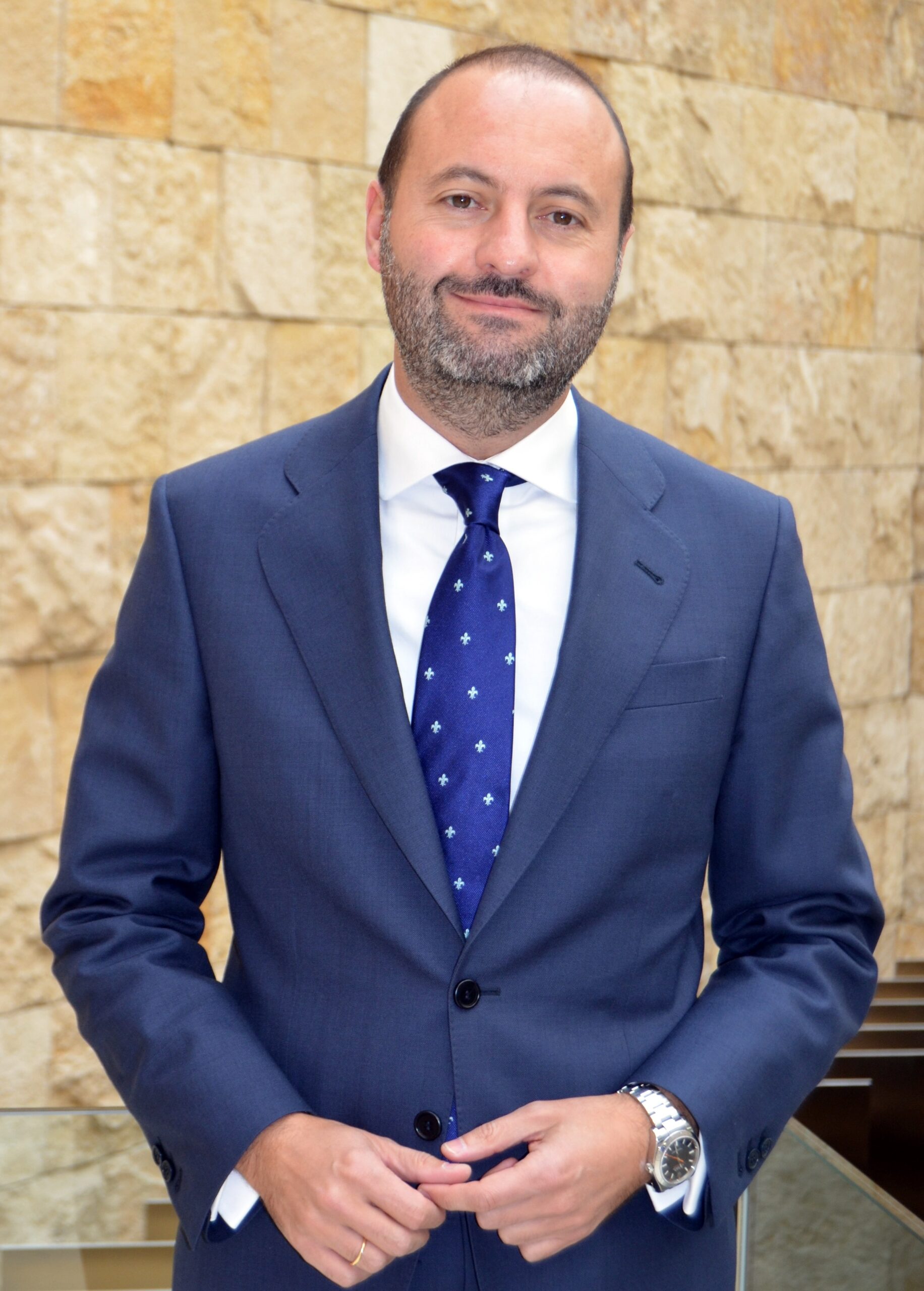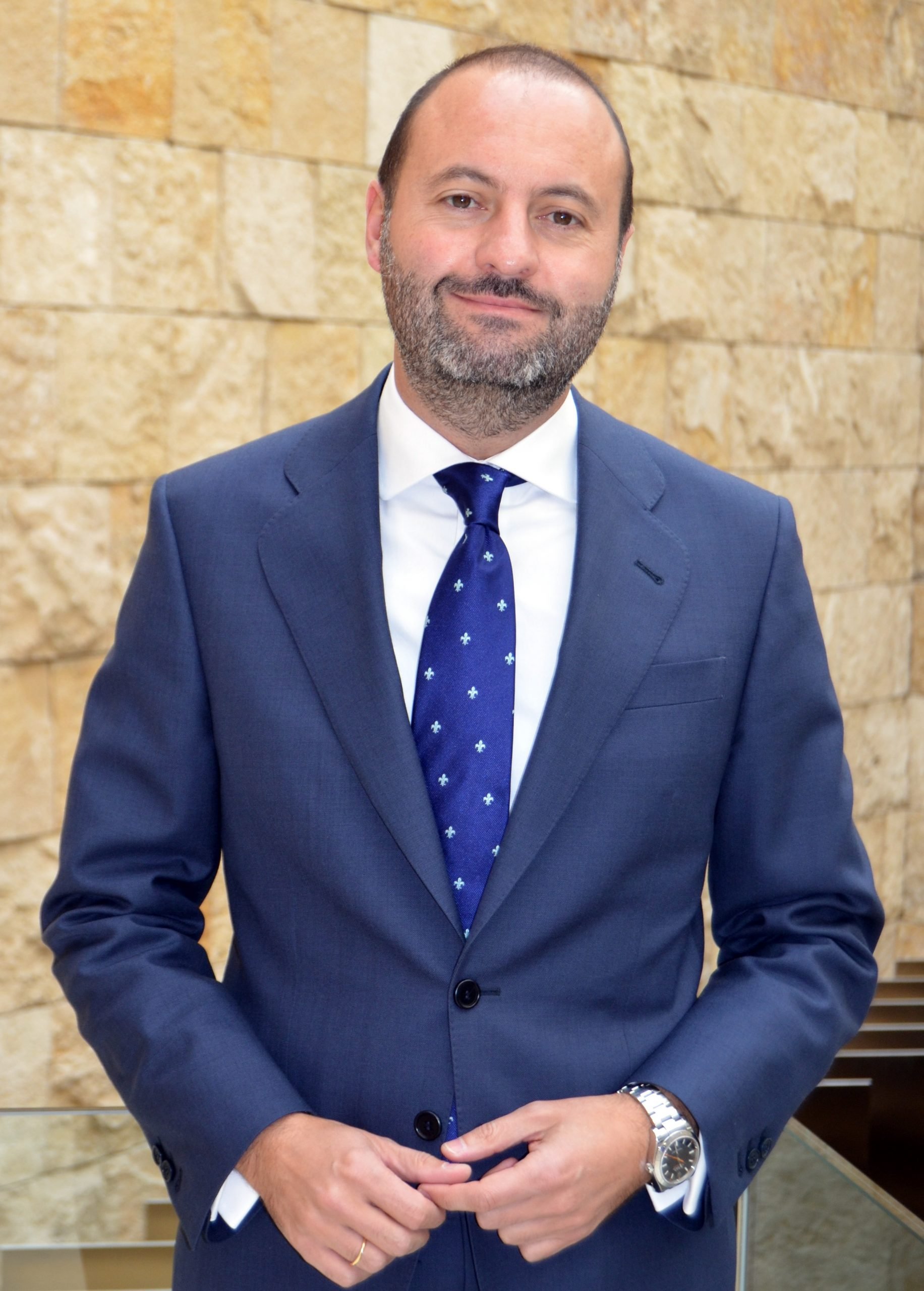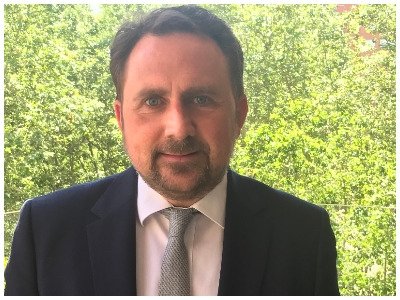Iván Delgado, Pérez-Llorca´s New York resident partner

Iván Delgado: “Representing Pérez- Llorca in New York and leading our LatAm desk from here is a responsibility, an honour and a privilege”

In the context of the uncertainty created by the health crisis of the COVID-19, Iberian Lawyer wanted to recover links, build bridges with partners abroad who run offices with great strategic significance for Iberian firms. For this reason, in order to know how they are living this moment of general anxiety and how they see us from outside, we have opened this section with Iván Delgado, resident partner of the New York office of Pérez-Llorca. Because if they can’t come to us, we’re coming to them.
We presume that being a firm ́s “first sword” in a foreign office, in this case, in New York, is a challenge and a great responsibility, even more so in these times. Tell us how you are living the situation of COVID-19 both personally and professionally, taking into account the great impact that the coronavirus is having in the USA and your background as a resident partner in NY.
Indeed, the mere fact of representing a great firm like Pérez-Llorca in New York and leading our LatAm Desk from here is a responsibility, but also an honour and a privilege. The confinement imposed in New York caught me coming back from Madrid where I was working on an operation. On a personal level, we locked ourselves (my wife, my two children and I) in our Manhattan apartment, and I have been working from home ever since. My wife is dedicated to organizing and coordinating donations for groups and institutions affected by COVID-19, and my children attend their regular online classes at their school. The advantage of our confinement is that we can go out freely, although we must wear a mask. In the professional aspect, I have the advantage of having already lived the 2008 financial crisis as a partner at Pérez-Llorca, and that experience is helping me a lot to face this current crisis. I would summarize by saying that during the COVID-19 crisis, I have seen three stages:
1. Panic situation
Clients asked us for constant updates on the legislative measures that were being approved and on what was intended to be approved. There was confusion and panic. The days were super intense, there were no schedules or weekends, but it was understandable because the clients needed clarification and urgent responses to so many new developments.
2. Bleeding control
After a few weeks, clients were more or less clear about the situation they were facing and we started to help them implement some issues related to cost reduction, staffing, finding additional Financing, starting Refinancing and even various Bankruptcy and Litigation issues.
3. The new normality
We are now in a situation where customers are thinking about reopening and especially about the future of their employees and businesses. Everything points to the fact that the crisis will last several years and they want to adjust as soon as possible to what seems to be the new normality.
Has your work as a representative of the firm in New York changed due to the economic health crisis? Is the search for possible synergies and lines of business trying to “recover” the possible “lost ground” due to the pandemic as soon as possible, among your tasks?
The fact that we are facing a global crisis means that my work has changed in the same way as that of all my colleagues who also live in New York and represent foreign law firms
We are a very large community covering virtually every continent and several dozen countries. One of the tasks we have as representatives here is to develop new business for our firms and that, naturally, has been slowed down with this crisis by not having absolute freedom of movement, not being able to travel and not being able to meet face to face with other people. We have all reactivated our commercial action by using technological platforms and organizing webinars, among other actions, although naturally, it is not the same. We will see if this is temporary or if it is here to stay. In any case, I am optimistic and I am sure that there will be opportunities and I trust that we can take advantage of them by continuing to make use of our New York office, from which we follow the Latin American region.
Solidarity has been visible in the legal sector since the beginning of the crisis in the Iberian Peninsula. The United States has a reputation for being a much more aggressive market. Is this so? What are the main differences between how the crisis is being dealt with in the US and in Spain? Should Spain learn something from the US? And on the contrary?
The United States has both sides and both are very visible and also in their most extreme version. It is a country with very generous and supportive people, organizations and companies, but at the same time with a super competitive market. The measures adopted in the United States are generally geared towards companies and citizens, as in Spain, although in the United States they are more focused on tax incentives and financial facilities than on subsidies and public aid. The differences between the two countries are notable in the Labour system, the health system and the education system, above all. Both countries have something to learn from each other.
Is the State mandatory “interventionism” due to COVID-19 similar there? In some countries such as the UK, the legal profession is asking for this interventionism to be increased even at the legislative level in order to provide more flexible solutions. What do you think?
No. The United States is less interventionist than other countries at the legislative level and has not acted differently because of the COVID-19 crisis.
It is true that protectionist measures have been adopted in relation to immigration and foreign trade, in addition to reinforcing those already approved in terms of restrictions on foreign investment in critical sectors, but in theory, these measures are intended to protect American citizens. Without going into detail, I believe that the protectionism of countries is a recent trend at world level. Perhaps we are facing the beginning of deglobalization. Time will tell.
In the United States, smart working is generally accepted and established. Has this helped in adapting to the COVID-19 scenario?
That’s right, in the United States, clients and companies have been used to doing business and working remotely for years. The adaptation has been quick and well-accepted, although it should be clarified that not many states have banned their citizens from going out on the streets. The authorities are issuing recommendations and appealing to citizens’ sense of responsibility to comply with these recommendations.
Do the most affected practice areas (positively/negatively) by the crisis (either by volume of client demands or operations) in the USA coincide with those in Spain?
This COVID-19 crisis is a global crisis, so the most affected areas coincide at the moment in both countries, in my opinion. I do not think that will be the case in a few months’ time, as the economic and legislative measures adopted by the two countries are not the same, and therefore the recovery may go at different rates and at different times. The areas that are growing the most are Litigation/Arbitration, Banking and Finance, Restructuring and Insolvency and Labour. There are areas that are still very active such as Regulatory and Corporate, although focused on other issues different from the COVID-19 pre-crisis phase. Finally, an area that is currently less active is the Capital Markets and, in particular, IPOs.
How is the crisis affecting Spanish firms in the USA?
Law firms suffer in crises, just like any other company, although the truth is that we suffer less than other sectors. The type of advice we provide to our clients’ changes because they have other needs. As far as Pérez-Llorca is concerned, we came out of the 2008 financial crisis stronger, with more clients and a greater number of lawyers. I would love this crisis of COVID-19 to be short and give us the same opportunity so that we can leave with more clients who trust us with their issues and projects, as well as with more talent in our ranks.
By Desiré Vidal
To read the article in full please download issue N.95 here












